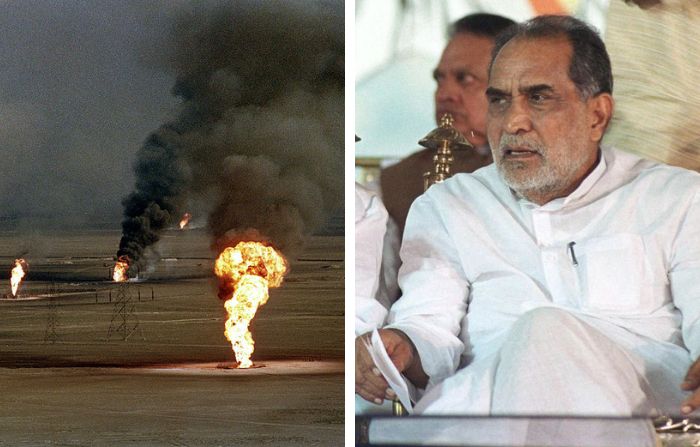- Wednesday, May 01, 2024
The Chandra Sekhar government had allowed American airplanes to refuel on its soil, leading to a massive uproar since India traditionally followed the policy of Non-Alignment.

By: Shubham Ghosh
INDIAN prime minister Narendra Modi recently said that the country needs a stable majority government at a time when the world is going through “uncertain times”. The two-time PM, who is looking for a rare third mandate, said this at an event in New Delhi where he was unveiling his Hindu nationalist Bharatiya Janata Party’s (BJP) manifesto for the general elections kicking off on Friday (19).
“The cloud of uncertainty is hovering over the world today. There is a situation of war. The world is tense. In such times of crisis, the security of Indians living in these regions is our priority. When such tensions prevail across the world, it becomes all the more necessary to have a strong and stable government with a full majority – such a government that makes the country economically prosperous…,” Modi said a day after Iran launched missile and drone strikes on its regional foe Israel in the Middle East, weeks after Tel Aviv allegedly destroyed Tehran’s diplomatic premises in Damascus in Syria.
That Modi’s words have a grain of truth has historical evidence.
Read: How Modi linked India election with Iran-Israel conflict
Thirty-three years ago, when India was away from another general election, a similar uncertainty was witnessed in the Middle East after the US and its allies attacked Iraq of former dictator Saddam Hussain whose forces had occupied Kuwait. It was the final phase of the bipolar Cold War era with India seen more as a nation loyal to the Non-Aligned Movement with a tilt towards the former Soviet Union.
Read: India election poll of opinion polls: Modi likely to win but…
A few months ahead of the elections that was necessitated by its collapse, the then Chandra Sekhar government of India, a fragile one depending on a big outside support to survive, did something that created an uproar. It had allowed the US airplanes to refuel in Mumbai (then Bombay) while heading to the Persian Gulf from the Pacific. In January 1991, US C-141 aircraft stopped at the Bombay airport at the rate of about two daily, the Times of India had reported.
The planes originated from the Philippines, the newspaper added. A spokesperson for the US embassy in India had refused to issue any statement over the report and said diplomatic missions nowadays neither confirm nor deny military movements under normal circumstances.
Chandra Sekhar, who was leading a minority government with the support of the Congress of former prime minister Rajiv Gandhi and was just two months into office, had taken a more critical stand on Iraq and after the American planes refuelled on the Indian soil, he was being accused of pandering to Washington’s “imperialism”.
The then prime minister, who was also leading a nation facing severe economic challenges, was slammed by both India’s Left and the Congress. Chandra Sekhar’s immediate predecessor VP Singh, whose minority government had also tumbled in less than a year, also opposed any policy that appeared to back the US, given the fact that India has traditionally followed the policy of Non Alignment.
The decision to allow the US planes to refuel had come at a time when India’s then domestic airline Indian Airlines had to reduce its services nearly by a third to save aviation fuel.
The Indian government also tried to defend the incident saying the planes were carrying no weapons or other war aid.
Given the fact that Chandra Sekhar had no experience in foreign policy emboldened his domestic political rivals as well as the Congress which waited for an opportunity to pounce upon, to target him more.
Chandra Sekhar’s tryst with power ended in March 1991 when the Congress withdrew support following allegations that the government tried to keep Rajiv Gandhi’s home under surveillance.
The prime minister, who had survived on humiliating terms till then, had said enough was enough and he could not run a government like that any more.
His resignation and the Congress’s refusal to stake its claim to form a government saw then Indian president Ramaswamy Venkataraman appointing Shekhar as the interim prime minister.
Elections were called in May and June but the shocking assassination of Rajiv saw the direction of Indian politics taking a completely different direction.
![]()